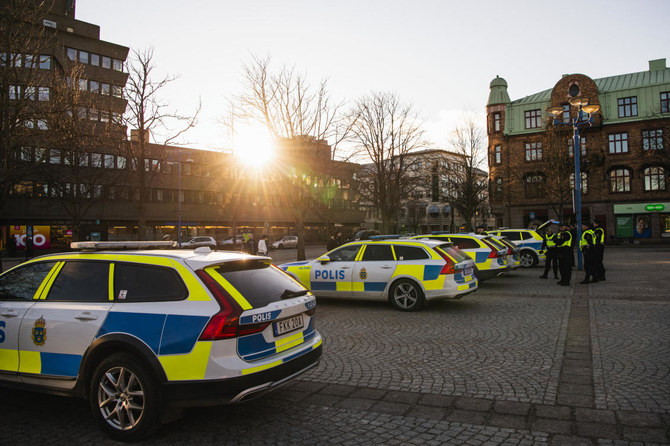STONE MOUNTAIN: In a large, empty parking lot outside Atlanta, one car slowly careened around parking spaces. From the passenger seat, driving instructor Nancy Gobran peered over large sunglasses at her student, a 30-year-old Syrian refugee woman who was driving for one of the first times in her life.
“Turn the wheel and then accelerate,” Gobran, the owner of Safety Driving School, said softly in Arabic. Gripping the wheel tightly, the student cautiously rounded the corners of the parking lot for nearly an hour.
Gobran has been working for nearly five years with a program called Women Behind the Wheel, which offers 14 hours of free drivers’ education to mostly refugee and immigrant women. Many of the women who enroll come from countries that discourage women from driving or working outside their home.
It’s not a new concept, but Women Behind the Wheel is unique to Georgia. Similar programs exist across the country, such as Refugee Women Rising in Omaha, Nebraska, which offers driver’s education, seat belt safety and car seat installation help, and Driving Opportunity in Denver, which offers classroom and road instruction to refugee women.
“Helping a lot of refugees is not easy,” Gobran said. “At the beginning, it’s kind of awkward for some people for their first time being behind the wheel, but by the end of the program, they gained the benefit they’ve been looking for.”
Students sign up for the driving program through Ethaar, an Atlanta-area nonprofit organization that aids refugee families through their resettlement. Its name is an Arabic word meaning altruism and affection.
Ethaar co-founder Mona Megahed said she started Women Behind the Wheel to fill a glaring need many refugee families have that partially stem from cultural differences.
“We named it Women Behind the Wheel for a reason,” Megahed said. “We really wanted to empower our female clients. A lot of these women were struggling because they were fully dependent on their spouses.”
She noted some husbands held beliefs from their home countries that their wives shouldn’t drive or work.
“We quickly explained, well, you can’t really provide if you’re making minimum wage and you have six mouths to feed in addition to helping with your wife,” Megahed said. “So she also needs to kind of learn how to drive and find a job and get out there.”
The stress can be compounded for families in metro Atlanta, where many people rely on cars to get around. Most of the refugee families Ethaar works with settle in Clarkston, a suburb 15 miles (24 kilometers) northeast of Atlanta.
“Most of the time because of lack of access to transportation, it’s hard for them to get to their jobs,” said Sarah Karim, Ethaar’s executive director. “It’s hard for them to go study anywhere except for what is close by, and there aren’t that many options, unfortunately.”
Their clientele depends on the shifting global landscape and conflicts, Karim said.
“Lately, we’ve observed various nationalities among our clients, including families and individuals from Afghanistan, Burma, Syria, Sudan, Somalia, Pakistan, Iraq, and Eritrea,” Karim said.
So far, there have been 230 graduates of the program, including a few men. The driving program typically has a three-to-four-month waitlist because of the demand. The US government gives refugee families up to 12 months of financial and medical assistance, so there is limited time to become autonomous.
“The point is for every refugee to reach self-sufficiency or self-reliance,” said Dorian Crosby, a Spelman College professor who is an expert in refugee migration.
“Learning how to drive and getting access to a license is critical to refugee women reaching that level of self-reliance,” Crosby said. “It’s not just to meet the government regulations of the cutoff, but they now can sustain themselves. It is also such an emotional boost.”
Instructors like Gobran are fluent in Arabic, which makes students more comfortable. She watched her client slowly gain confidence over her hourlong session. A smile crept across her face. A month later, her student passed her driving test.
“This is their new home, and they have to understand how this country works,” Gobran said. “It starts with the very little thing as driving to build a future.”
























